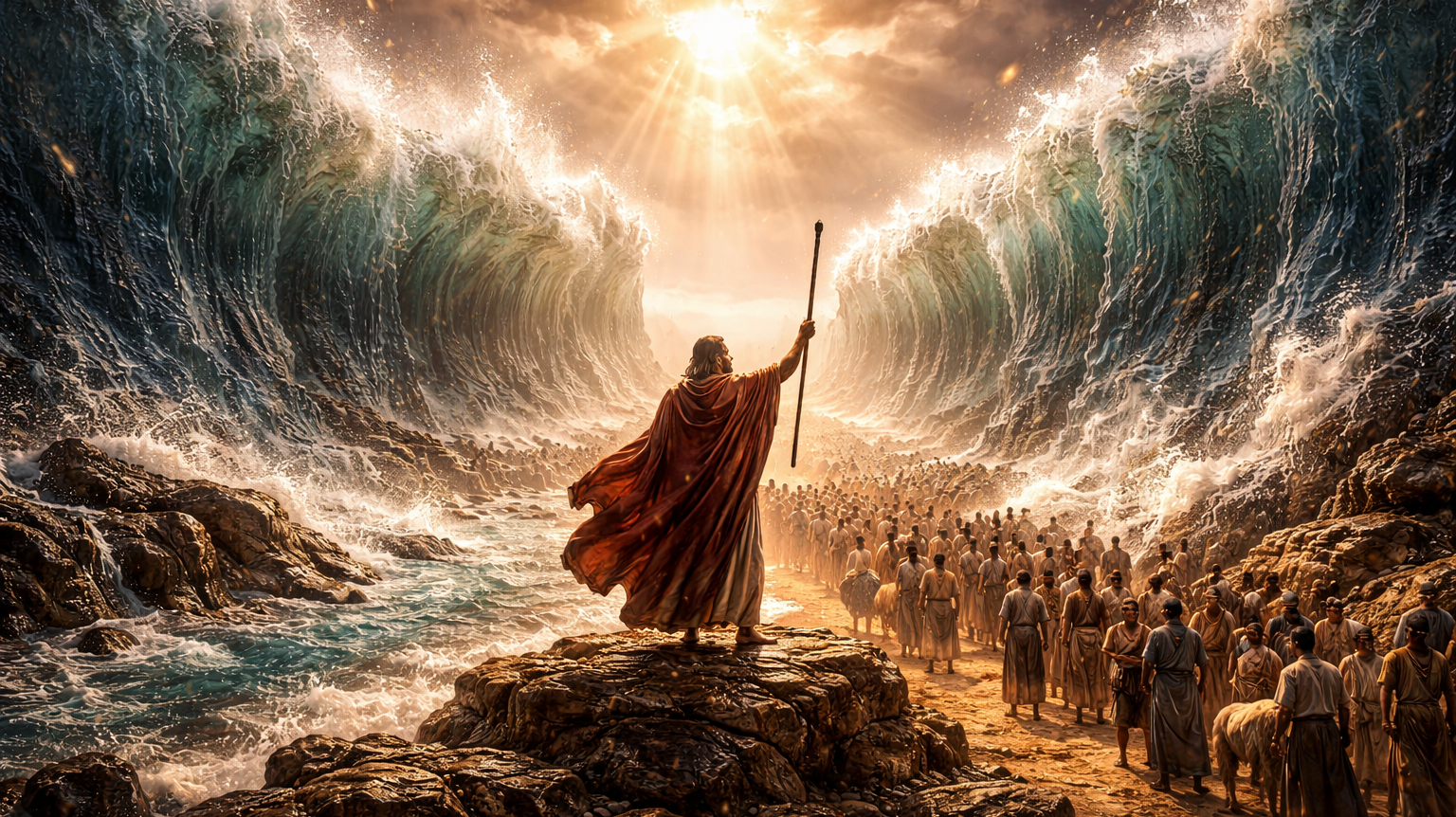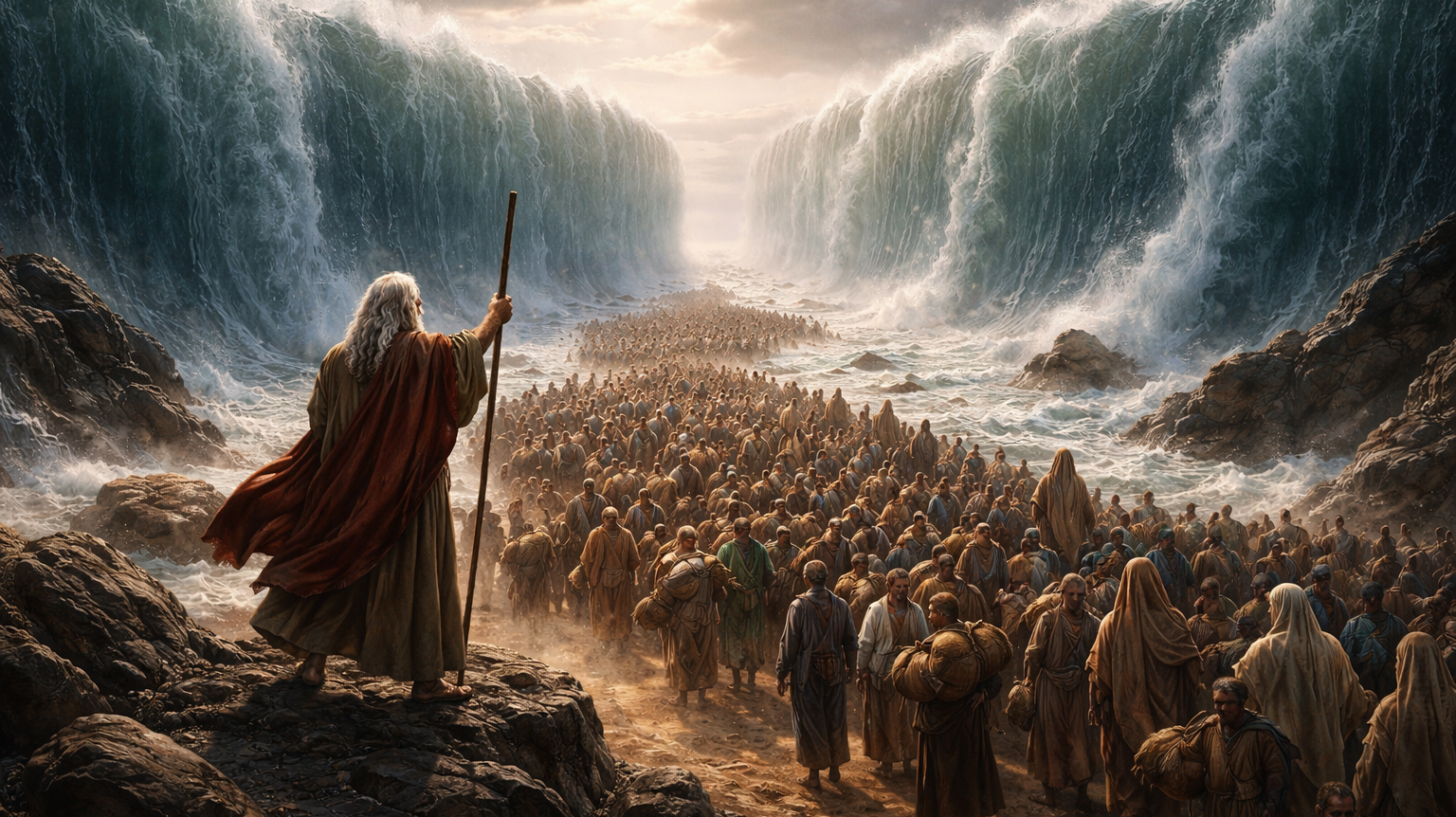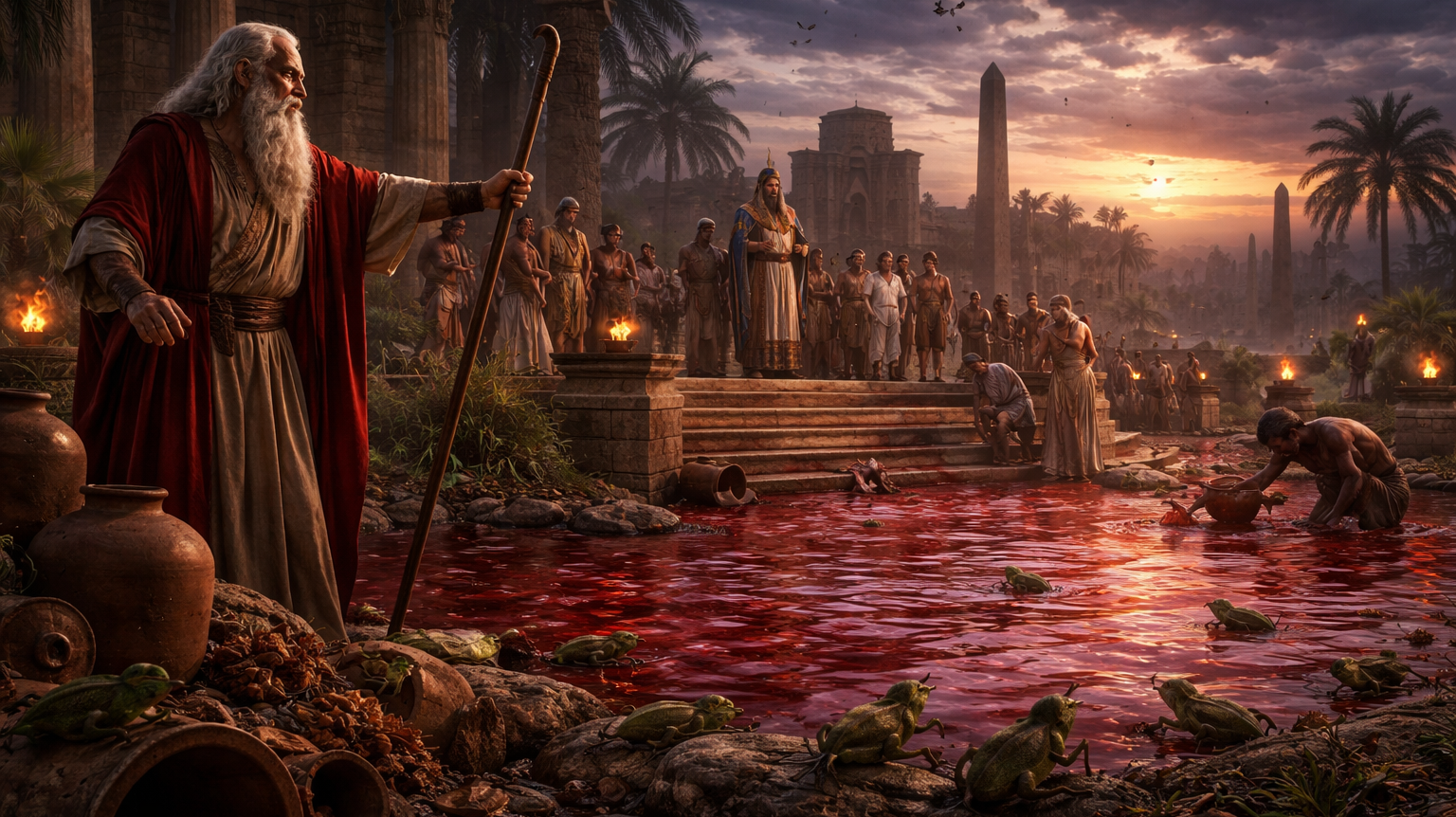The Book of Exodus is the second book of the Bible and serves as a pivotal moment in the history of Israel. It details the story of the Israelites’ deliverance from slavery in Egypt, their journey through the wilderness, and their covenant with God. Exodus holds deep theological significance, revealing God's power, faithfulness, and the beginnings of the nation of Israel. Here are 10 interesting facts about this powerful book.
1. Exodus Means "Exit" or "Departure"
The name "Exodus" comes from the Greek word ἔξοδος (exodos), which means "exit" or "departure." This name is fitting, as the central event of the book is the Israelites’ dramatic escape from slavery in Egypt. This departure marks the beginning of Israel as a nation chosen by God.
"So Moses said to the people of Israel, 'Fear not, stand firm, and see the salvation of the Lord, which he will work for you today. For the Egyptians whom you see today, you shall never see again.'" — Exodus 14:13 (ESV)
2. The Ten Plagues of Egypt
One of the most famous parts of Exodus is the account of the ten plagues that God sent to Egypt to persuade Pharaoh to release the Israelites. Each plague was a divine judgment against Egypt's gods and a demonstration of God's power. From turning the Nile into blood to the death of the firstborn sons, these events are critical to understanding God's sovereignty and justice.
"And the Lord said to Moses, 'Stretch out your hand over the land of Egypt for the locusts, so that they may come upon the land of Egypt and eat every plant in the land, all that the hail has left.'" — Exodus 10:12 (ESV)
3. Moses and the Burning Bush
Moses encounters God in a burning bush that is not consumed by the flames, which serves as a symbol of God's holiness and presence. This event marks the beginning of Moses’ mission to lead Israel out of slavery.
"And the angel of the Lord appeared to him in a flame of fire out of the midst of a bush. He looked, and behold, the bush was burning, yet it was not consumed." — Exodus 3:2 (ESV)
4. The Covenant at Mount Sinai
Exodus contains the account of God’s covenant with Israel at Mount Sinai. The Israelites are chosen to be God's special people, and they agree to obey His commandments. This covenant is sealed with the giving of the Ten Commandments, which are foundational for Israel’s laws and morality.
"And God spoke all these words, saying, 'I am the Lord your God, who brought you out of the land of Egypt, out of the house of slavery.'" — Exodus 20:1-2 (ESV)
5. The First Passover
The first Passover is instituted in Exodus as a way for the Israelites to avoid the final plague—the death of the firstborn. Each household must sacrifice a lamb and place its blood on their doorposts as a sign for the angel of death to pass over them. This event becomes a symbol of God’s salvation and is commemorated annually in the Jewish tradition.
"The blood shall be a sign for you, on the houses where you are. And when I see the blood, I will pass over you, and no plague will befall you to destroy you when I strike the land of Egypt." — Exodus 12:13 (ESV)
6. The Crossing of the Red Sea
One of the most dramatic moments in the Book of Exodus is when the Israelites cross the Red Sea. Pharaoh’s army pursues them, but God parts the waters, allowing the Israelites to escape. Once they are safely across, the waters return, drowning Pharaoh’s forces. This event is a powerful image of God’s deliverance.
"Then Moses stretched out his hand over the sea, and the Lord drove the sea back by a strong east wind all night and made the sea dry land, and the waters were divided." — Exodus 14:21 (ESV)
7. Manna from Heaven
As the Israelites journey through the wilderness, they face hunger. God provides them with manna, a miraculous food that falls from heaven. This provision serves as a reminder that God cares for His people and provides for their needs.
"When the dew had gone up, there was on the face of the wilderness a fine, flake-like thing, fine as frost on the ground." — Exodus 16:14 (ESV)
8. The Golden Calf
While Moses is on Mount Sinai receiving the Ten Commandments, the Israelites, in his absence, build a golden calf and worship it. This act of idolatry leads to God’s anger, and Moses intervenes to save the people. The story highlights the dangers of turning away from God, even after experiencing His miraculous works.
"When the people saw that Moses delayed to come down from the mountain, the people gathered themselves together to Aaron and said to him, 'Up, make us gods who shall go before us.'" — Exodus 32:1 (ESV)
9. The Tabernacle: A Place for God's Presence
The Tabernacle, as described in Exodus, was a portable sanctuary for God’s presence. It was built according to God's detailed instructions and became the center of Israel’s worship. The Tabernacle's design, with the Ark of the Covenant at its core, foreshadows God’s dwelling with His people and points toward Christ’s ultimate sacrifice.
"And let them make me a sanctuary, that I may dwell in their midst." — Exodus 25:8 (ESV)
10. The Name of God Revealed
In Exodus, God reveals His name to Moses as "I AM WHO I AM" (Yahweh). This name emphasizes God's eternal existence, self-sufficiency, and unchanging nature. It is a central theme throughout the Bible, signifying God's personal relationship with His people.
"God said to Moses, 'I AM WHO I AM.' And he said, 'Say this to the people of Israel: 'I AM has sent me to you.''" — Exodus 3:14 (ESV)
























